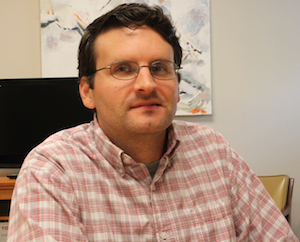The 2012 election season is in full swing between incumbent President Barack Obama and Republican challenger Mitt Romney.
With just over a month until Election Day on Nov. 6, polls across the nation have shown a consistently tight race between the two candidates. Both campaigns have raised hundreds of millions of dollars in donations, much of which has been spent on a cavalcade of media advertising.
North Carolina is widely regarded as a swing state in this election. While polling shows many states favoring one presidential candidate over the other, swing states are the handful that remain up in the air until Election Day.
North Carolina’s 15 electoral college votes went to Obama in 2008, the first time since the 1976 election that the state backed a Democrat for president.
Todd Collins, associate professor of political science and the director of WCU’s Public Policy Institute, indicated that North Carolina is not as crucial a swing state as some others in this election.
“If you look at how Obama won in 2008, North Carolina was a part of it, but we weren’t like Florida in 2000,” said Collins. “I think either candidate could win without winning North Carolina, but it would obviously help.”
With this election being so closely contested, neither presidential campaign is neglecting the Tar Heel State.
Hoping to repeat Obama’s North Carolina success in 2012, the Democratic National Convention came to Charlotte earlier this month. The day before the convention, Romney’s running mate, Rep. Paul Ryan of Wisconsin, led a victory rally on the campus of East Carolina University in Greenville.
Collins explained that the winner-take-all nature of electoral college votes fails to reflect how close elections typically are in North Carolina compared to other Southern states.
“When you look at a map of who wins or who loses, you’re either considered all red or all blue,” Collins said. “If you want to see how competitive those states are, you really need to look at things like the percentage of the vote that each candidate gets.”
Obama’s 2008 victory in North Carolina was narrow, by a margin of less than one percent. He received 2,123,390 votes in the state compared to 2,109,698 for Republican John McCain, and 25,419 for Libertarian Bob Barr.
A lack of enthusiasm could impact Obama’s Democratic Party base turnout this November. When North Carolina voters nominated their parties’ presidential candidates in the May 8 primary, 20 percent of registered Democrats selected ‘no preference’ rather than nominating the incumbent president.
“That’s kind of a sign,” said Collins, “when people in your own party are checking ‘no preference’ rather than voting for you when you’re basically assured the nomination.”
The impact of redistricting
Every ten years, the U.S. Census Bureau conducts a new census of the national population in accordance with the Constitution. The results are used to apportion seats in the U.S. House of Representatives based on individual state populations.
States are divided into congressional districts, each served by one representative. The decennial process of drawing district lines based on new population numbers, known as redistricting, is conducted in many states by the state legislatures, including in North Carolina.
In the 2010 midterm elections, Republicans gained majority control of both houses in the North Carolina General Assembly for the first time since 1898, putting them in charge of redrawing the state’s congressional districts for the new decade.
“For the first time, we had Republicans controlling the North Carolina legislature,” Collins explained, “so we had Republicans drawing the lines in ways that would help incumbent Republicans and other Republicans that are running for office.”
WCU is located in North Carolina’s westernmost 11th District, represented since 2007 by Heath Shuler, a member of the Democratic Party’s Blue Dog Coalition of self-identified moderates.
The 11th District has historically been very competitive for congressional candidates due to the contrasting political demographics of Western North Carolina, particularly between densely populated Asheville and the neighboring rural communities.
However, after redistricting, that might change. The 10th District now extends west into Buncombe County, encompassing most of Asheville and leaving the 11th District largely conservative.
Collins points out that politically conscious redistricting, though controversial, is both legal and traditional.
“The Supreme Court has even said that parties are allowed to draw based on incumbency and they can think about partisanship because it is a partisan process,” explained Collins, “and if you’re a Republican, you’re saying ‘well this is just what the Democrats have been doing for the last hundred years.’”
Rep. Shuler declined to run for reelection in the redefined 11th District. Hayden Rogers, Shuler’s longtime chief of staff, secured the Democratic nomination for 11th District representative over fellow candidates Cecil Bothwell and Tom Hill in the May primary.
Mark Meadows technically won the 11th District Republican race in May with 37 percent of the vote, but the fact that no candidate secured at least 40 percent required a runoff election between Meadows and runner-up Vance Patterson. Meadows won that July 17 contest with over three-quarters of the vote.
Rogers and Meadows have publicly debated twice this month, in Franklin and Brevard. Collins is trying to organize a debate between the two congressional candidates at WCU.
“I think it’s important to have one here on campus so that voters in Jackson County can see what the differences are between them,” Collins said.
With both political parties aiming to increase their presence on Capitol Hill this election season, the contest between Meadows and Rogers is sure to be one of the most closely watched in the state.
Related stories:
Touchscreen voting: the good, the bad, and the ugly
Amendment One passes, Jackson County no longer dry
C-SPAN Campaign 2012 Bus visits WCU



